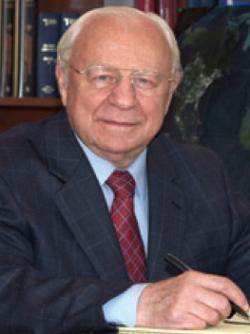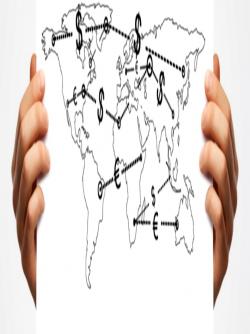Our Mathematical Universe
Many people remember math as a subject they hated in high school. Maybe they found it difficult or dull. Maybe they just thought it was not relevant to their lives. Mathematicians, however, often find math not only beautiful, but also profoundly meaningful. Why? And what does this mean for Christians?
Abstractions to Realities
One attraction of pure mathematics is that even some of the most theoretical and starkly abstract ideas that mathematicians have “created” have turned out to describe some very physical and tangible aspects of our world.
For instance, when the Greek mathematician Apollonius studied the curves called conic sections, he wrote that he pursued his study not because his results might be helpful in certain applications, but rather because “the subject is one of those which seem worthy of study for their own sake.” Yet, even though Apollonius saw that his abstract research might have some practical use, he had no idea that—nearly 2,000 years later—his subject would be used to describe with precision how the planets in our solar system orbit around the Sun.
When the celebrated philosopher René Descartes (known for his axiom, “I think, therefore I am”) created the coordinate system of geometry, which freed mathematicians to compute in multiple hypothetical dimensions beyond the three we experience in our daily lives, he had no idea that six-dimensional geometry would one day be found perfectly reflected in the “waggle dance” honeybees use to tell their hives where they have found food.
And when mathematicians such as Euler and Gauss three centuries ago explored the mathematically absurd idea of “imaginary” square roots of negative numbers, they would never have conceived that their “imaginary numbers” would form an integral part of the most fundamental laws of physics known in our time: quantum mechanics.
The Miracle of Mathematics
So, how is it that even pure mathematics, developed, explored and extended over centuries with no apparent connection to reality, is sometimes found to be not abstract at all—but, rather, to be part of the very fabric of our very real, very concrete universe?
Some have called this phenomenon the “miracle of mathematics.” In his famous paper, “The Unreasonable Effectiveness of Mathematics in the Natural Sciences,” physicist Eugene Wigner wrote that “the enormous usefulness of mathematics in the natural sciences is something bordering on the mysterious… there is no rational explanation for it.” Further, he observed, “The miracle of the appropriateness of the language of mathematics for the formulation of the laws of physics is a wonderful gift which we neither understand nor deserve.”
Natural science alone cannot explain why we find, beneath the reality around us, such a beautiful, ordered, and systematic foundation of mathematics. It is an astonishing fact for which scientists have no natural explanation, though many have tried to provide one. It remains a fundamental mystery of science. As Stephen Hawking asked in his landmark book A Brief History of Time, “What is it that breathes fire into the equations and makes a universe for them to describe?”
Fingerprints of the Creator
Scripture tells us that many of the amazing attributes of God can be detected and understood in the wonders of His creation (Romans 1:20). When we view the vastness of the magnificent universe and the intricacy of the tiny atom, we cannot help but be astounded by the creative power of the Almighty God. His power is on display in all areas of science, such as biology, chemistry and physics—fields of study that reveal to our inquisitive minds not only the fingerprints of a great Creator but also the elements of His character.
Not only is this true of the physical sciences, it is particularly true of mathematics—the discipline sometimes called “the queen and servant of science.” Though the subject may spur memories of seemingly endless parades of sums and multiplication tables from our childhood schoolwork, the fact is that mathematics can reveal God’s wondrous power and mighty attributes in startling ways that many would find deeply and unexpectedly inspiring.
Consider a finely crafted mechanical watch. At first view, we can be awed at the smoothness of its motions and the regularity of its actions as it marks the passage of the minutes and hours. Yet, when we open the cover of the watch and look inside, our awe can grow far deeper, as we gaze upon the intricate and precise interaction among the many gears, coils and springs. We cannot help but be impressed, even astonished, by the ingenuity of the design and the obvious intelligence behind it.
It is the same with mathematics. Math is a tool that lets us open the “cover” of the universe, allowing us to see a deeper level of fundamental order, precision and ingenuity—just what we would expect from a cosmos designed by a Creator of supreme intelligence!
A Grand Book
Galileo Galilei, the famous astronomer, in his 1623 treatise The Assayer, described the universe as a “grand book” that “stands continually open to our gaze, but it cannot be understood unless one first learns to comprehend the language and interpret the characters in which it is written. It is written in the language of mathematics.” Indeed, the language of mathematics has unlocked for our understanding the wonder we see in the created universe, making it available for our view, and providing an even deeper sense of wonder and powerful insights into the precise and orderly laws by which Creation is governed.
To the atheist or agnostic, this may be a baffling puzzle. But for those who believe in a logical, rational, all-wise and all-powerful Creator, it is no surprise. We read in the ultimate “grand book”—Holy Scripture—that the Almighty “appointed the ordinances of heaven and earth” (Jeremiah 33:25), and we can see that many of those ordinances were written in the language of mathematics. As philosopher and theologian William Lane Craig has noted, “God created the universe on the mathematical structure that He had in mind.”
When we look through the eyes of living faith, every aspect of the works of God’s hands will point us toward the glory and majesty of our awesome Creator. Mathematics is not the dry, dusty and dispassionate subject many believe it to be. Rather, it is a beautiful instrument—a tool by which we can come to marvel at the unassailable logic, the masterful order and the perfect soundness of God’s divine mind in a remarkable and inspiring way!






